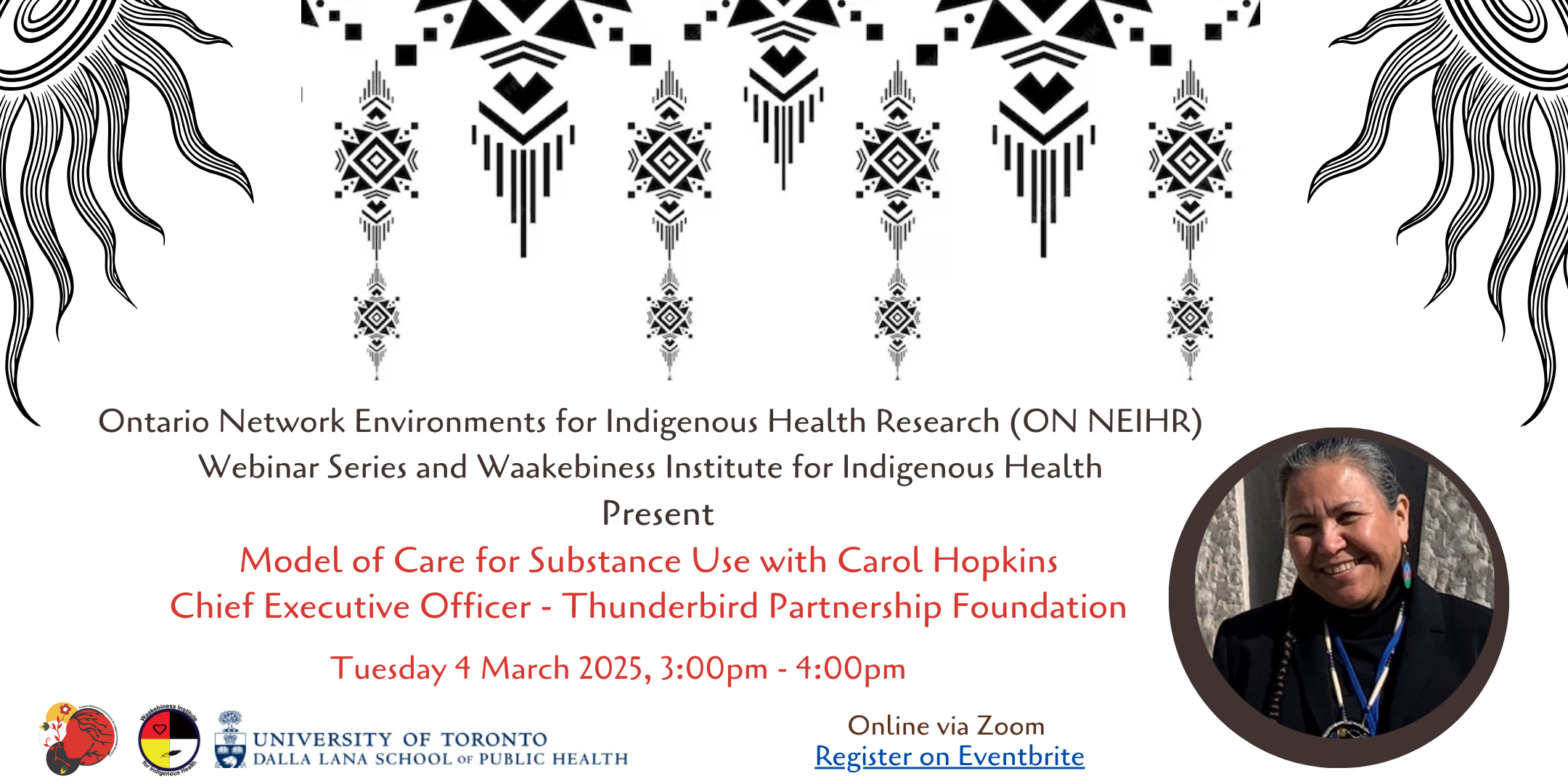- Location
- Zoom
- Series/Type
- DLSPH Event, U of T Community Event, WIIH Event
- Format
- Online
- Dates
- March 4, 2025 from 3:00pm to 4:00pm
Links

Welcome to the Ontario NEIHR Monthly Webinar Series 2024/2025
Please join us on March 4, 2025 with guest speaker Carol Hopkins!
Presentation title: Model of Care for Substance Use
Abstract: First Nation communities often lack resource capacity for community-based intervention to address the drug crisis. This lack of equitable resources impacts First Nations in various ways, most significantly the disproportionate representation of First Nation death due to drug poisoning. This webinar will present a model of care for community-based substance use intervention. The model of care includes essential services and the care pathways that are necessary to support First Nations wellness. The aggregate data from the National Addictions Management Information System and the Native Wellness Assessment supports strengthening resources for culture-based care elements as well as many other services that must brought into First Nation communities through partnership and collaboration. The culture-based model of care for substance use is intended to support First Nations with a community-based model, promoting wise practices for providing integrated services closest to home, and that can be adapted to community specific needs.
Speaker bio: Carol Hopkins is the Chief Executive Officer of the Thunderbird Partnership Foundation and is of the Lenape Nation, Canada. Carol was appointed as an Officer in the Order of Canada, 2018. In 2019, she received an honorary Doctor of Laws degree from Western University.
Carol has spent more than 25 years in the field of First Nations substance use and mental health. She holds both a Master of Social Work Degree from the University of Toronto and a degree in sacred Indigenous Knowledge from Midewiwin, equivalent to a PhD in western based education systems.
Carol has throughout her career, made use of Indigenous knowledge in research, policy, practice-based evidence, teaching, and education, and in facilitating processes of decolonization specific to epistemic racism. She has co-chaired national initiatives known for best practice in national policy review and development. Her leadership has been engaged within Health and Mental Health for First Nations, Provincial, Territorial, and Federal governments serving several expert advisory committees and task groups.